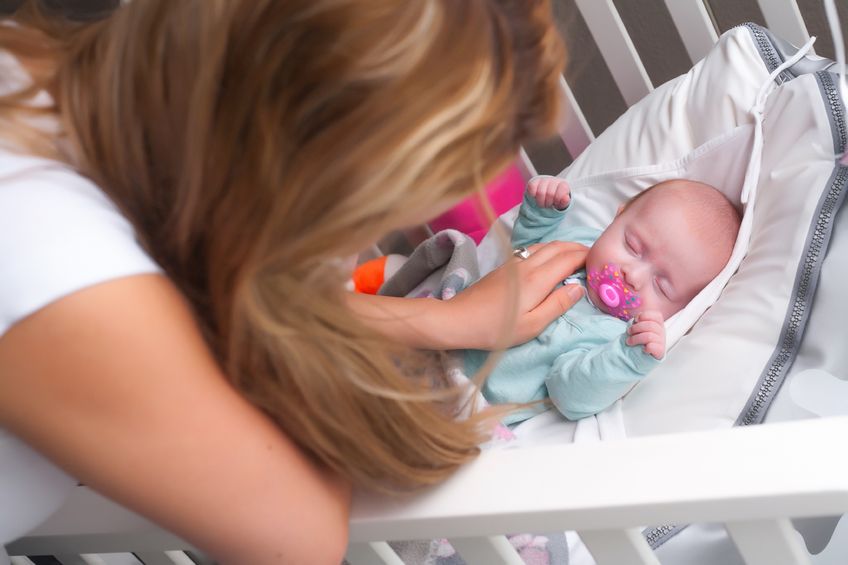Parents often struggle with the controversial decision of how to get their babies to sleep, and stay asleep. A new study is giving parents reassurance that two popular sleep training techniques for infants don’t have any long-term emotional effects.
Researchers monitored 225 children who were enrolled in the study at 7 months old and were experiencing sleep problems, through the age of 6. Half of the infants were sleep trained with either, the “controlled comforting” (also called “graduated extinction”) or the “camping out” methods.
Graduated extinction is a method in which the parents let their infants cry and began to respond to them at increasing intervals, teaching them to self-soothe. In the camping out method, parents stay in their infant’s room and pat or stroke them to sleep while they are in their cribs but, do not feed or cuddle them to sleep. Gradually, the parents are to back away from the crib and eventually exit the room. The key to both methods are to put the baby down when he/or she is already drowsy but, awake.
At the age of 6, the children who received sleep training were no worse off than the children without sleep training. There were no negative or positive effects on any of the sleep trained children. Factors that were measured included emotional behavior, psychosocial functioning, sleep quality, stress levels and how close the children were to their parents.
The way parents approach sleep with their babies is a complex and personal decision. Sleep training isn’t for everyone and parents should do what’s best for their babies and environments where they live.



Comments are closed.